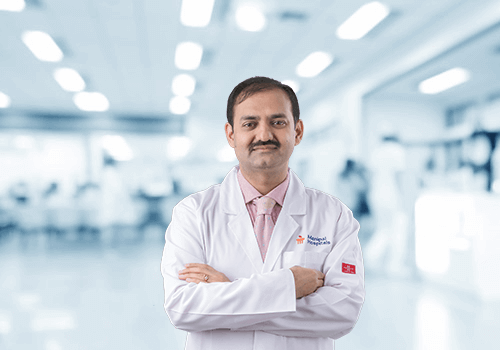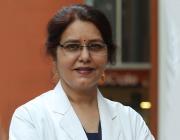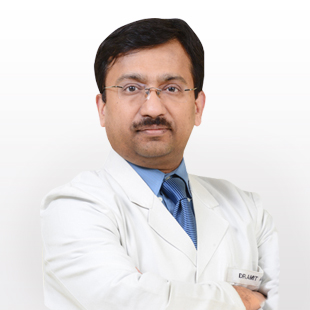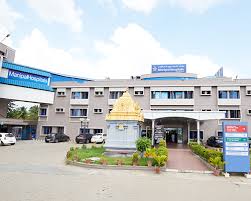About The Doctor
Prof. Dr. Somashekhar S P is one of the best Surgical Oncologist, he is currently the Chairman & HOD at Manipal Hospital, Bengaluru.
Specialization
- Surgical Oncology
- Gynaecological Oncology
- Robotic Surgery
- Radio Guided Surgery
- HIPEC, PIPAC
- Sentinel Node
Awards
- TOI : Times Health Care Achievers Awarded in field of Oncology 2019
- Recipient of Millenium Gold Medal Award, 2006 ASI, SSB for work in Sentinel Lymph Node.
- Editor and author of Various Text Book and operative Atlas’s on Oncosurgery and Breast surgery, Gynecological oncology & Robotic surgery
- Has contributed several chapter to various International and National Text book on Oncology
- Initiated HIPEC program for Peritoneal Surface Malignancy & has done largest number of HIPEC in India
- Holder of Gujarat University record for highest individual marks in Mch (Oncosurgery) Exams
- Council member ISSPP : International Society for Study of Pleura and Peritom
- Hon Secretary ISPSM : Indian Society of Peritoneal Surface Malignanciestion
- ERAS Onco surgery expert
- First in India to initiate Robotic Scarless Thyroidectomy programme & TORS
- Has several scientific publication in indexed International and National Journals
- Recipient of the prestigious Dr. D .D. Patel Gold Medal in Oncosurgery
- Received Gujarat University Gold Medal in MCh (Oncosurgery)
- Member of Board of studies, Manipal University
- Member, Business Advisory Board, MHEPL
- One of the top rankers of University in Graduation and Post-graduation
- Director of Breast Surgery and Robotic surgery fellowship, Manipal University
- Has done highest number of Robotic Complex Oncosurgeries in India
- Mentor for Robotic Surgery Vantikutti / Intuitive Surgical
- Editor in Chief of IJGO Springer Indian Journal of Gynec Oncology
- Associate editor IJS, Indian Journal of Surgery
- University Examiner for Oncosurgery
- DNB, Examiner for Oncosurgery
Frequently Asked Questions About Oncology
How many kinds of tumours are there?
There are two kinds of tumour – Malignant & Benign. A benign tumour is more common, and is generally harmless. It doesn’t spread to other parts of body. A malignant tumour on the other hand, never stops growing unless until treated and can spread to other parts of the body. cancer is the name given to a malignant growth.
Is cancer contagious or infectious?
No. Since cancer is not caused by a germ, it is not “catching”, and cannot be transmitted from one person to another.
How does Cancer spread?
A malignant tumor is made up of cancer cells. When it first develops, this malignant tumor may be confined to its original site. This is known as a cancer in situ (or carcinoma in situ). If these cells are not treated, they may spread beyond their normal boundaries and into surrounding tissues, becoming invasive cancer. Some benign tumors are precancerous and may progress to cancer if left untreated. Other benign tumors do not develop into cancer. For a cancer to grow bigger than the head of a pin, it must grow its own blood vessels. This is called angiogenesis. Sometimes cells move away from the original (primary) cancer, either by the local tissue fluid channels (lymphatics) or in the blood stream, and invade other organs. When these cells reach a new site, they may continue to grow and form another tumor at that site. This is called a secondary cancer or metastasis.
What are the warning signs of Cancer?
The chances of curing cancer increase with early detection. The Indian Cancer Society and other organizations recommend paying attention to seven warning signs of cancer:
– Changes in bowel or bladder habits
– Unusual bleeding or discharge
– A sore that does not heal
– Indigestion of difficulty swallowing
– A nagging cough or hoarseness
– A thickening or lump in the breast or elsewhere
– An obvious change in wart or mole
A physician can detect cancer by taking medical history, performing routine check ups, cancer screening tests, imaging techniques and tissue biopsy.
What is Chemotherapy used for?
Chemotherapy is given for the following reasons:
– Shrink tumors
– Slow cancer’s growth
– Keep the cancer from spreading
– Relieve diseases related symptoms
– Prolong survival
Chemotherapy is used to treat many different types of cancer. The type, location, and stage of the cancer as well as your general health will largely determine if chemotherapy is appropriate and which agents ought to be used.
What are the benefits of taking treatment through MMT instead of directly from the doctor?
We provide services from top doctors across top hospitals to ensure that you get the best treatment.











